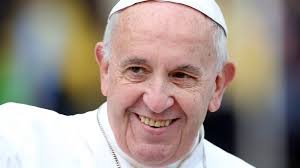When people think of world leaders, one of the first questions that often comes to mind is their financial standing. In the case of Pope Francis, his net worth and the financial status of the Catholic Church often become a topic of interest. The focus on Pope Francis’ net worth might seem surprising, especially since he is known for living modestly. But understanding the wealth of the Vatican and its leader reveals much more than just numbers—it offers insights into how Pope Francis leads one of the world’s most influential religious institutions.
In this article, we’ll explore Pope Francis’ net worth, his views on wealth, the financial structure of the Vatican, and what this means for the Catholic Church. Along the way, we’ll also answer some common questions people have about the Pope’s financial situation.
The Humble Beginnings of Pope Francis
Pope Francis, born Jorge Mario Bergoglio in Buenos Aires, Argentina, came from a working-class family. Before entering the seminary, he worked various jobs, including as a janitor and chemical technician. His early life wasn’t filled with luxury or excess, which greatly influenced his view on wealth and material possessions later in life.
His approach to money is vastly different from the wealth we associate with many religious and political figures. Even as a Pope, Francis has continued to prioritize a simple life. He lives in a modest guesthouse instead of the grand Apostolic Palace, forgoing lavish settings that many previous popes enjoyed. This lifestyle strongly reflects his views on humility and charity.
What Is Pope Francis’ Net Worth?
Understanding Pope Francis’ net worth can be complex. While it’s difficult to assign a specific number to his personal wealth, it’s estimated that Pope Francis has a very minimal net worth compared to other world leaders. Reports suggest that Pope Francis’ personal wealth is likely negligible, as he does not receive a salary for his role as the head of the Catholic Church. The position of the Pope comes with significant responsibilities and privileges, but direct financial compensation is not one of them.
The Vatican itself, however, holds vast financial resources. The Catholic Church controls significant assets in the form of properties, art collections, donations, and various other investments. But these resources are considered part of the Church’s wealth, not Pope Francis’ personal fortune. Therefore, while the Vatican may appear wealthy, Pope Francis himself does not hold personal ownership of this wealth.
How the Vatican’s Wealth Relates to Pope Francis’ Net Worth
When people search for information about Pope Francis’ net worth, they often confuse the personal finances of the Pope with the wealth of the Vatican. The Vatican, as the governing body of the Catholic Church, is responsible for billions of dollars in assets. These include priceless art, centuries-old churches, and real estate across the world.
However, it’s important to note that Pope Francis has no personal control over these resources. The Vatican’s finances are managed by a complex bureaucracy designed to ensure that the money serves the needs of the global Church. Pope Francis himself has worked to bring more transparency to these financial systems, advocating for responsible use of Church resources.
Pope Francis’ Approach to Wealth and Financial Transparency
Pope Francis has been vocal about the Church’s responsibility in managing wealth. Since becoming Pope in 2013, he has called for greater financial transparency and reform within the Vatican. His leadership emphasizes the idea that the Catholic Church should be a force for good, using its wealth to help those in need.
In keeping with this philosophy, Pope Francis has consistently advocated for the poor and marginalized. He has publicly denounced economic inequality and excessive materialism. In his famous apostolic exhortation, Evangelii Gaudium, he called for a church that is “poor and for the poor,” highlighting his deep commitment to social justice over financial gain.
Pope Francis’ Living Arrangements and Expenses
Despite being the leader of one of the wealthiest religious institutions in the world, Pope Francis continues to live modestly. After becoming Pope, he chose to live in the Vatican’s Santa Marta guesthouse, a simple residence compared to the luxurious Papal apartments in the Apostolic Palace. This decision was in line with his belief that leaders should be close to the people and avoid the trappings of wealth.
He does not have large personal expenses. The Vatican covers basic living costs, but these are far from extravagant. The focus remains on service rather than luxury, which reflects Pope Francis’ lifelong commitment to humility.
The Role of Donations in the Vatican’s Finances
A large portion of the Vatican’s wealth comes from donations made by Catholics worldwide. These donations are intended to support the global operations of the Catholic Church, including charitable initiatives, maintenance of church properties, and the administrative costs of running the Vatican. However, none of these funds go directly to Pope Francis as personal income.
Pope Francis has worked to ensure that these donations are used effectively. In recent years, he has pushed for stricter financial oversight and accountability within the Vatican, addressing concerns about the mismanagement of Church funds. His focus remains on using the Church’s wealth to benefit those who need it most.
Read more: Homeworkify: Simplifying Your Homework Process with Ease
FAQs About Pope Francis’ Net Worth
No, Pope Francis does not receive a personal salary for his role as the leader of the Catholic Church. His living expenses are covered by the Vatican, but he does not personally benefit from the Church’s vast wealth.
Pope Francis’ personal net worth is minimal. While estimates suggest he may have some personal savings from his time as a priest and bishop, he does not hold significant personal assets or wealth.
The Vatican’s wealth comes from a variety of sources, including donations from Catholics, investments, and property ownership. It also generates income from museum admissions and tourism. However, these funds are used for the Church’s global operations, not for the Pope’s personal use.
Pope Francis chose to live in the simple guesthouse at Santa Marta to reflect his belief in humility and closeness to the people. He rejected the more luxurious Papal apartments in favor of a more modest living arrangement.
Pope Francis oversees the Vatican’s operations, but he does not have direct control over the Church’s finances. A team of officials manages the Vatican’s wealth, and Pope Francis has worked to ensure greater transparency and accountability in the Church’s financial matters.
Conclusion
Pope Francis’ net worth might be a subject of curiosity for many, but it’s essential to understand the distinction between the Pope’s personal wealth and the vast resources of the Vatican. As a leader who has consistently advocated for simplicity, humility, and charity, Pope Francis lives by the values he preaches. While the Vatican remains a wealthy institution, Pope Francis himself embodies a different approach to material wealth, one focused on service and care for the poor. His influence on the Catholic Church goes far beyond finances, shaping a vision of leadership that prioritizes compassion over riches.





